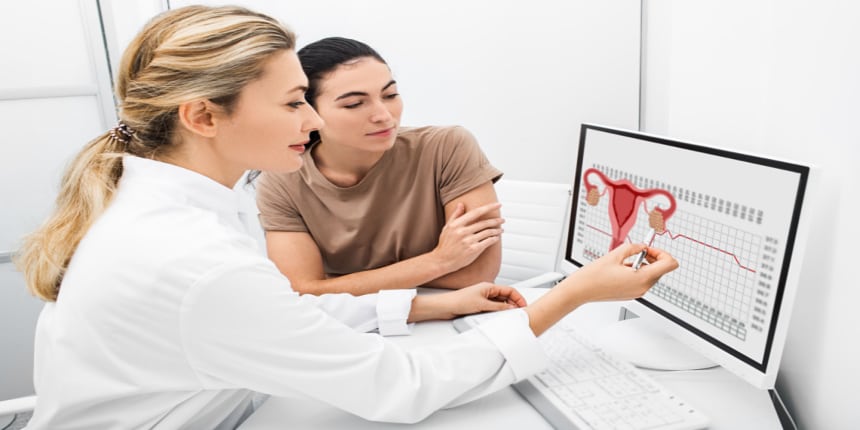MC Full Form
What is the full form of MC?
Menstrual Cycle (MC) or periods is the female's reproductive cycle during puberty. The menstrual cycle corresponds to the natural changes in a female's reproductive system, generally beginning at the age of 12-13 years and continuing to the age of 40-45. The female body undergoes several hormonal and physical changes during the menstrual cycle. However, it is essential to keep the female reproductive system healthy.
- What is the full form of MC?
- Menstrual process
- Menstrual cycle phases
- Common symptoms of menstruation
- Menstrual diseases

Menstrual process
A female's reproductive system undergoes a cycle of events to keep it healthy. Every month, the uterus prepares to implant the fertilised egg by accumulating the blood lining on the uterus wall. If the female egg gets fertilised, it gets implanted in the uterus wall with the help of the placenta. However, if the implantation does not occur, the blood lining sheds and initiates the menstrual cycle.
Menstrual cycle phases
The four phases of the menstrual cycle are (1) the menstrual phase, (2) the follicular phase, (3) the ovulatory phase, and (4) the luteal phase. The Menstrual Phase initiates when the blood lining of the uterus starts shedding. The blood lining was prepared for the implantation of the fertilised egg. However, if the egg is not fertilised, the blood lining sheds from the body. The menstrual phase (menstruation or periods) lasts 3 to 5 days. While in the follicular phase, a matured egg follicle gets prepared to release an egg from the ovaries.
The ovulatory phase is the fertilisation period, where ovulation takes place and lasts for 13 to 17 days. In this phase, the ovary releases only one egg out of the matured 15-20 follicles. The final phase of the cycle is the Luteal phase, where hormones FSH and LH transform the remaining follicles to corpus luteum, which produces progesterone. If fertilisation does not occur, then the menstrual cycle repeats itself.
Common symptoms of menstruation
During menstruation, the female body undergoes several physical and hormonal changes. These are:
Bloating
Acne
Mood swings
Period cramps
Breast tenderness
Food cravings
Spotty skin or greasy hair
Inactive sexual drive
Menstrual diseases
Menstrual diseases occur due to irregularities in the menstrual cycle or during periods. A few such disorders are:
Premenstrual Syndrome (PMS): The symptoms include irritability, bloating, depression, mood swings, cravings, etc. Every 3 or 4 menstruating women have some form of PSM.
Amenorrhea is the absence of a menstrual period during a female's reproductive age. It happens during pregnancy and lactation.
Abnormal Uterine Bleeding (AUB): Excessive bleeding may occur during the menstrual phase, after sexual intercourse, and/or after menopause.
Frequently Asked Questions (FAQs)
Menstruation is the monthly shedding of the blood lining at the start of the menstrual cycle. It starts at the age of puberty.
The luteal phase starts on day 15 of the menstrual cycle. FSH and LH hormones convert the follicle into corpus luteum and produce progesterone.
If the egg gets fertilised, the menstrual cycle stops, and the female becomes pregnant.
The ovaries are parts of the female reproductive system where eggs are produced.
Menopause is the ending of the reproductive cycle of the female that usually occurs at the age of 40-45 years.